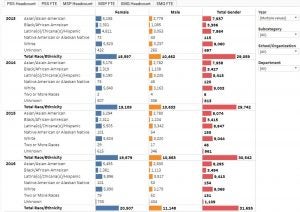COVID-19, the disease caused by the novel coronavirus, has introduced a new term to our lexicon: “social distancing.” I confess I dread that term. To me, it sounds like social ostracization, stigmatization, the “othering” of those who are marked as outsiders. If it were up to me, I would’ve picked “social buffering,” “safe distancing,” or even “safe spacing.”
Perhaps I’m just linguistically picky. But words matter. I can’t help wonder what difference a name could make. We could have picked a term that better aligns with our public health message. After all, the most powerful framing to fight COVID-19 rejects the “us” versus “them” mentality. We are reminded that for most people, masks don’t keep us from catching the virus as much as prevent us from spreading it to others. When we suspend in-person classrooms, it’s not primarily to benefit students, who are arguably the most resilient. It’s to protect their more vulnerable parents, grandparents, relatives, and society at large. In other words, the public health message is that we as individuals should sacrifice to protect the group. Seen this way, “social distancing” is profoundly pro-social, a way to decrease density to protect community. That is why I find the term so unfortunate.
In other words, the public health message is that we as individuals should sacrifice to protect the group. Seen this way, “social distancing” is profoundly pro-social, a way to decrease density to protect community.
From this perspective, you can see why I’m concerned about the use of another name, “Wuhan virus,” which reflects both intellectual laziness and stereotyping. It’s lazy in the sense that there are more precise names for the novel coronavirus, SARS-CoV-2, and the disease that it causes, COVID-19. We’re smart enough to learn the proper nomenclature. It’s also stereotyping because the term strengthens the mental association between a specific disease and Chinese people, and thus indirectly all East Asians, Asians, Asian Americans, immigrants, foreigners, and others. In this sense, using “Wuhan virus,” unwittingly or not, is a form of “name calling” that increases the chances that people of Asian descent will be teased, bullied, harassed, or just made to feel like they don’t belong. It’s so unnecessary in a moment when we need unity not division, care not contempt, solicitude not sarcasm.
In this sense, using “Wuhan virus,” unwittingly or not, is a form of “name calling” that increases the chances that people of Asian descent will be teased, bullied, harassed, or just made to feel like they don’t belong.
Taking COVID-19 seriously raises many other diversity and inclusion questions besides racial stereotyping. Consider class privilege: how knowledge workers in suits can telecommute far more easily than service staff in uniforms. Think about the first-generation or international students attending universities throughout the country who are suddenly encouraged to exit their dorms. Think about students with disabilities having to adapt unexpectedly to remote teaching. Or those LGBTQ students who found reprieve on campus but must duck and cover back at home. Finally, think about ageism and the dark humor of still another phrase catching on, “Boomer Remover.”
Crisis reveals character. In this crisis, we must not turn inward, become self-interested, show disdain for “foreign” viruses, and demand protection of “us” from “them.” Instead, we should expand outward and recognize shared fragility and humanity across all our differences. Every time someone says “social distancing,” we should hear in our minds “social caring through safe distancing.” And every time someone says “Wuhan virus” or “Chinese virus,” we should interrupt with “novel coronavirus” or the disease “COVID-19.” Because words matter. Names matter. And we can all do better.
Trusted Resources Regarding COVID-19:
From UCLA
- UCLA COVID-19 Website
- Bruins Safe Online
- UCLA Twitter Feed
- Counseling & Psychological Services (CAPS)
- Staff and Faculty Counseling Center
From UC
- University of California: Equity and Inclusion During COVID-19 (also available via PDF)
From The Web
- Centers for Disease Control and Prevention (CDC) – Coronavirus (COVID-19) Information Page
- World Health Organization (WHO) – Mental Health Considerations during COVID-19 Outbreak (PDF)
- Centers for Disease Control and Prevention (CDC) – Manage Anxiety & Stress
2020 03 18 | Wed 09:28 AM — minor edits






